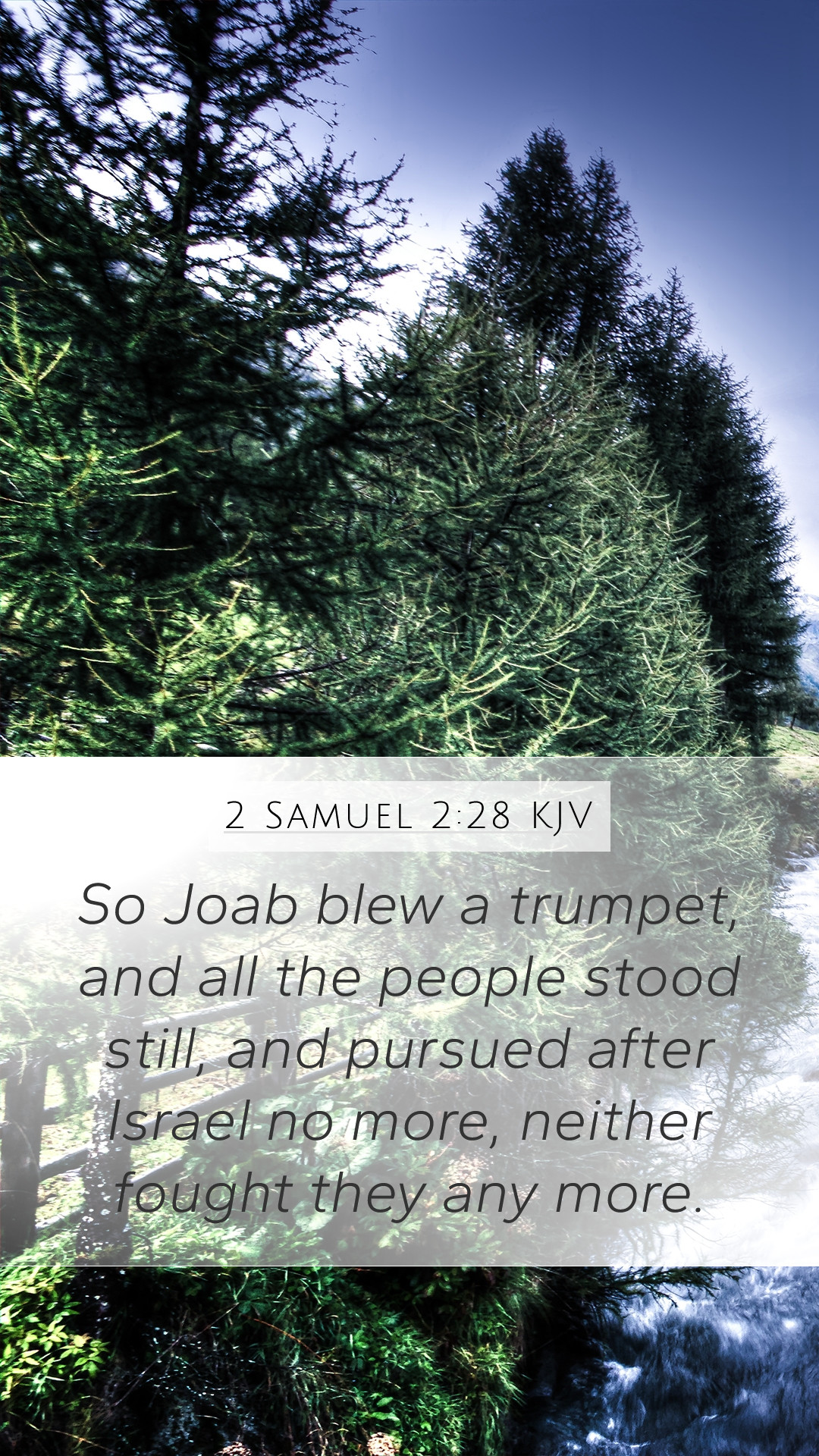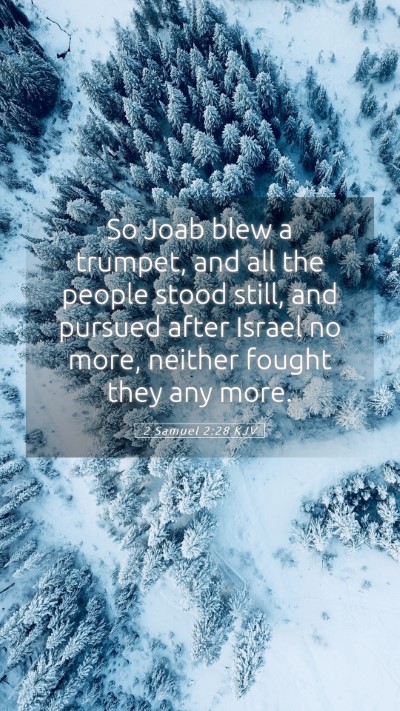Bible Verse Meaning: 2 Samuel 2:28
In this passage, we find a moment of significant transition and decision in the narrative of King David and his rise to power. This verse states:
"So Joab blew a trumpet, and all the people stood still, and pursued after Israel no more, neither fought they any more." - 2 Samuel 2:28
Overview of 2 Samuel 2:28
This verse occurs in the context of a civil conflict following the death of Saul. The tensions between the house of Saul and the rising influence of David are palpable. Joab, the commander of David's army, plays a pivotal role in this moment of military confrontation. With the blowing of the trumpet, Joab signals a cessation of hostilities, marking a critical point of decision for both sides.
Commentary Insights
Matthew Henry’s Commentary
Matthew Henry emphasizes the authority of Joab in this moment, noting that a trumpet served as a signal for peace and an end to conflict. This act symbolizes a divine provision for David as he begins to consolidate power over the kingdom.
Albert Barnes’ Notes on the Bible
Albert Barnes dives deeper into the implications of this cessation of war. He highlights that the blowing of the trumpet by Joab signifies the acknowledgment of David’s rightful claim to the throne, setting a tone of unity and peace which would become necessary for the nation’s future stability. Barnes also notes that Joab's leadership was crucial in steering the course towards peace, demonstrating military wisdom.
Adam Clarke’s Commentary
Adam Clarke offers a perspective that reflects on the conflict’s end as a moment of divine intervention. He posits that the blowing of the trumpet was not only a call to halt hostilities but also an invitation for reconciliation. Clarke notes the importance of this transition in the broader narrative of Israel's monarchy and suggests it foreshadows the future difficulties David would face in his reign.
Meaning and Application
This passage can be understood as a significant moment of decision where the potential for continued conflict is abruptly halted in pursuit of peace. Here are some key takeaways from 2 Samuel 2:28:
- The Role of Leaders: The act of leadership in difficult times is critical. Joab’s decision to signal peace reflects the weighty responsibility leaders have in guiding their people through conflict.
- Peace over Conflict: The significance of choosing peace is a recurrent theme in Scripture. This verse encourages readers to consider the importance of reconciliation in their personal and communal lives.
- Divine Sovereignty: The resolution of this conflict showcases God’s hand in guiding history. Believers can reflect on how divine providence shapes the course of events in their lives.
- Foundation for Unity: Establishing peace is necessary for building a solid foundation for unity and cooperation. This applies both in historical contexts and modern-day situations within communities and groups.
Cross References
- 1 Samuel 10:24: Samuel anoints Saul amidst the people, a parallel moment of national decision-making.
- 2 Samuel 3:1: Describes the ongoing war between the house of Saul and the house of David, providing context for the conflict leading up to this moment.
- Matthew 5:9: "Blessed are the peacemakers: for they shall be called the children of God," emphasizing the value placed on those who seek peace.
Conclusion
2 Samuel 2:28 presents a powerful image of leadership, the importance of peaceful resolutions, and the overarching theme of divine influence in human affairs. Through the insights from public domain commentaries, readers can gain a deeper understanding of the verse’s implications for both historical and contemporary audiences. Whether in personal life, church communities, or broader societal contexts, the call for peace and unity resonates through this scripture.


